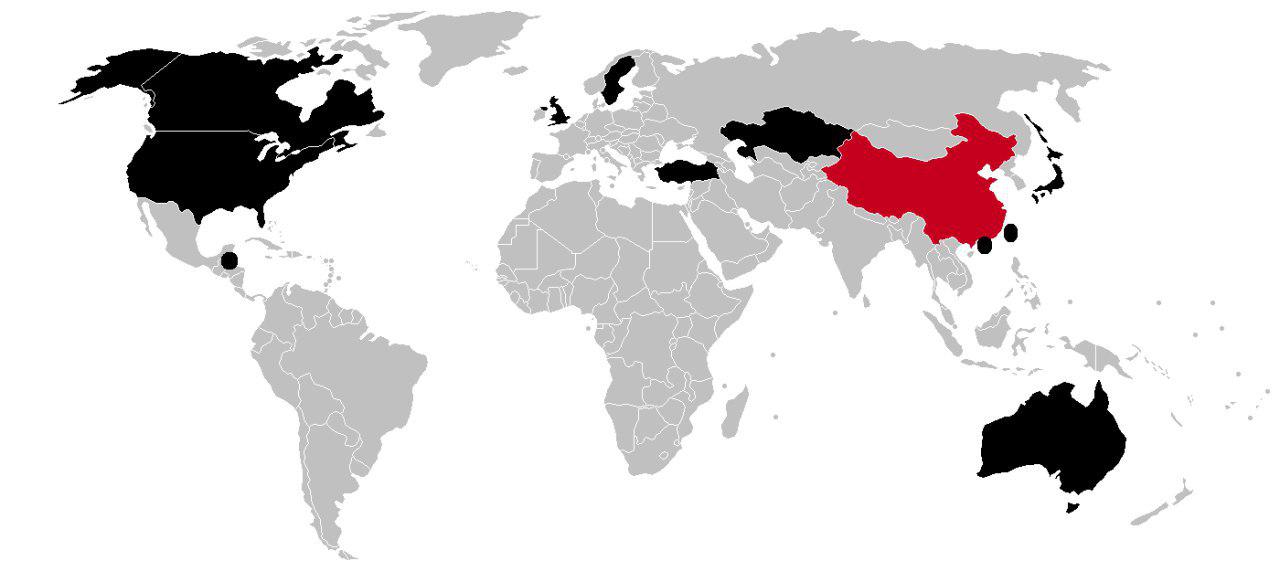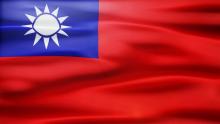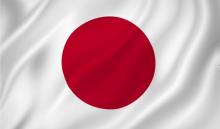China’s hostage diplomacy threat escalates after new HK law, global criticism
China’s hostage diplomacy has got a whole lot more threatening. An increasingly hostile China continues to target foreigners from countries that have angered it with arbitrary arrests, handing down death sentences, and expanding upon a recent trend - stealing the citizenship of former Chinese passport holders. Since the passing of Hong Kong’s draconian national security law at the beginning of July, the threat of becoming a pawn in China’s foreign policy now extends to those travelling to or residing in Hong Kong. Anyone, anywhere who has been “deemed” to endanger Hong Kong’s and therefore, China’s, national security and enters Hong Kong is now a potential target.
The response from the West
In response, western governments have issued travel warnings and introduced extradition bans or initiated reviews of existing extradition treaties with Hong Kong. On 12 July, the US urged its citizens to “exercise increased caution” when travelling to China because of the danger of exit bans, arbitrary arrests, long detentions and denial of consular support. A week earlier, the Australian government also warned of the danger of arbitrary arrest in Hong Kong.
“The new national security legislation for Hong Kong could be interpreted broadly. Under the law, you could be deported or face possible transfer to mainland China for prosecution under mainland law… You could break the law without intending to. If you’re concerned about the new law, reconsider your need to remain in Hong Kong.”
Australia’s Department of Foreign Affairs and Trade.
Australia also suspended its extradition treaty with Hong Kong because of the new law. The first country to halt its extradition treaty with Hong Kong after the new law was Canada at the beginning of July.
Unwelcoming Nation
This article is an update to Unwelcoming nation: China ramps up hostage diplomacy, which was first written at the end of 2019. Every few weeks, there was a new case – a foreigner disappeared, detained, or sentenced to a long prison sentence or the death penalty – often in retaliation for some spat between Beijing and another country, that we were constantly having to add new updates to the top of the story. This article incorporates these new cases with the original.
The main targets of China’s hostage diplomacy in the past 12 months have been Canada for not freeing Huawei CFO Huawei CFO Meng Wanzhou from a US extradition request and Australia, first for failing to ratify an extradition treaty with China, and then for criticizing Beijing’s handling of the coronavirus pandemic and calling for an international inquiry into the origins of the disease.
Expect to see more UK victims in the near future too as the UK opens a citizenship path for some 3 million Hongkongers and just yesterday passed further restrictions on Huawei and its role in its future 5G network.
These are the latest updates since the beginning of this year.
Harsher sentences
- At the end of June, China sentenced Canadian citizen Sun Qiao to eight years for belonging to the banned spiritual group Falun Gong. The decision came just days after Canada said it would not use political powers to free Meng.
- Australian citizen, Karm Gilespie, was sentenced to death for drug smuggling in early June, five years after his trial.
Citizenship theft
By forcing overseas Chinese who have become naturalized citizens of other countries to renounce their new citizenship, China can more easily deny them consular access in detention, prison and prevent embassy staff attending their court trial.
- Canadian Sun (see above) was born in China but held a Canadian passport. According to her lawyer Xie Yanyi, who was not allowed to represent her, she was forced to renounce her Canadian citizenship.
- While he was kept incommunicado at an unknown location, Swede Gui Minhai was alleged to have renounced his Swedish citizenship to become “Chinese” again. Stockholm said they had no record of this change and did not recognize it. Gui was handed down 10 years for “providing intelligence” overseas in February. The impossibility of Gui regaining his citizenship through legal procedure was expanded upon by Safeguard Defenders Peter Dahlin in an article in Hong Kong Free Press. Gui’s revoking his citizenship and regaining his prior, Chinese citizenship, follows UK citizen Lee Bo undergoing the same treatment in 2016.
Arrests
- Canadians Michael Kovrig and Michael Spavor's cases were moved to indictment on espionage charges on 19 June, shortly after a Canadian judge ruled against Meng in the extradition case. The two Michaels were first detained and held in RSDL (a type of incommunicado detention at a secret location) in December 2018 following Meng’s initial detention at a Canadian airport.
Detentions
- More than half a year after Yuan Keqin, a Chinese national but long-time resident of Japan, had gone missing in China, Beijing finally admitted it had detained the professor on suspicion of spying in March.
China’s hostage diplomacy by country
In recent years, Citizens of at least seven countries or regions—the US, Taiwan, Japan, Turkey, Kazakhstan, Hong Kong and Belize, and including a consular official and a university professor—have been disappeared in China in what appears to be arbitrary detentions, many accused of national security crimes, others caught up in the vast network of concentration camps in Xinjiang. And these are just the high-profile ones that media report.

Canada

The most blatant case of hostage diplomacy in recent years happened in December 2018, when Canada infuriated China by detaining Huawei CFO Meng Wanzhou following an extradition request from the United States. Within days, China retaliated by disappearing two Canadian citizens, former diplomat Michael Kovrig and businessman Michael Spavor, into RSDL; a move widely seen as a form of hostage diplomacy.
With Meng’s case still pending depsite intense pressure from Beijing, the two Michaels continue to be mistreated. They were formally indicted in June 2020 (see above).
At the end of last year Richard Lee, a Chinese-Canadian politician, went public with the news that he was detained for eight hours at Shanghai Airport back in 2015, his government phone was searched and he was accused of “endangering national security” before he was deported. He said he didn’t speak about it before because he didn’t want to jeopardize Canadian-China relations, but since then Beijing’s interference in Canada has escalated.
It didn’t stop there. In apparent anger at Canada’s continued refusal to release Meng, Beijing upped the jail sentence of Robert Schellenberg, a Canadian originally serving 15 years for drug smuggling to the death penalty, in a move widely seen as political, and in a procedure that, according to lawyers in China, was unprecedented. A few months later, China sentenced another Canadian Fan Wei to death for manufacturing meth, also seen as an outlier harsh judgement.
Canada has more experience than other countries with CCP hostage diplomacy. Back in 2014, Canadian couple Julia and Kevin Garratt were both disappeared into RSDL. Like the two Michaels, neither had access to a lawyer, and were kept at secret locations. Their detention was linked to Canada’s detention of a Chinese national: Su Bin, a Chinese aviation entrepreneur, who the US accused of being a spy. He was later sentenced to four years in jail in the US in 2016 for stealing military secrets.
Two brothers, Chen Zhiheng and Chen Zhiyu, naturalized Canadian citizens, were detained in April 2018 and forced to confess on Chinese state broadcaster CCTV to conspiring with exiled Chinese billionaire Guo Wengui. Guo is one of China's most wanted men and Beijing has long been trying to force him to go back to Chna. Recently leaked documents concerning China's policy of mass incarceration in Xinjiang, targetting Uighyr people, also revelead that yet another Canadian, Huseyin Celil, was detained back in 2005, in Uzbekistan, and taken back to China, and incarcerated ever since. Canada has been denied the right to visit their citizen in prison.
United States
 In August 2019, a massage therapist who lives in Arizona was taken away by Chinese police just after her plane landed in Shanghai. Friends and family are still trying to understand why Sue Jiang was arrested and accused of "provocation." Some speculate that she is fallout from the souring relationship between the US and China.
In August 2019, a massage therapist who lives in Arizona was taken away by Chinese police just after her plane landed in Shanghai. Friends and family are still trying to understand why Sue Jiang was arrested and accused of "provocation." Some speculate that she is fallout from the souring relationship between the US and China.
Americans Jacob Harlan and Alyssa Petersen were arrested at the end of September 2019 in Jiangsu province on charges of illegally moving people across borders. They had been running a business that brought foreigners to China to teach English for many years. Their arrest came just two weeks after the US arrested Chinese government official Zhongsan Liu on suspected visa fraud. The two were released on bail, but their families say that they were detained again at the end of December 2019.
In June 2018, US citizens, brother and sister Victor and Cynthia Liu were banned from leaving China, while their mother Sandra Han, also a US citizen was detained, an apparent attempt to force their estranged father Liu Changming to go back to China to face fraud charges.
US citizen, Huang Wan, daughter-in-law to fallen security tsar Zhou Yongkang was disappeared into RSDL for 10 months in 2013. In June 2019, she was allowed to leave China, but like the Lius she has been prevented from leaving. In 2015, another American, Sandy Phan-Gillis, was disappeared and held at a secret location for half a year.
John Cao, a pastor who had been working with schools in China and Myanmar, was sentenced to seven years in prison in March 2018 for "organizing others to illegally cross the border" after helping Chinese teachers to cross into Myanmar to hold classes with the knowledge and sometimes help of the authorities, according to his son. The U.N. Working Group on Arbitrary Detention has deemed his an arbitrary detention according to the Congressional-Executive Commission on China.
Businessman Kai Li was held in RSDL in September 2016 when he returned to Shanghai to mark one year since his mother's death. In July 2018, he was sentenced to 10 years after a secret trial a year earlier on state security charges. US diplomats were not allowed to attend his trial. His son says his father's health is suffering in jail.
One of the earliest cases involved a US geologist Xue Feng. In 2007, he was disappeared in China for several years, tortured and then imprisoned for stealing secrets. He was finally released in 2015 and allowed to return home to the US. In 2006, another pastor, David Lin was given a life sentence on charges of contract fraud. He had come to China to build a church. His sentence was recently reduced and he is expected to be released in 2030.
Taiwan
 This autumn, fourteen months after Taiwanese academic Tsai Chin-shu went missing in China, Beijing finally admitted it had detained him on charges of endangering national security.
This autumn, fourteen months after Taiwanese academic Tsai Chin-shu went missing in China, Beijing finally admitted it had detained him on charges of endangering national security.
Just a week or so earlier, news broke that another Taiwanese citizen, Morrison Lee had also been detained in China, also on national security charges. This time it took China three weeks to admit it was holding him. He was formally arrested at the end of November with the charges now specificed as illegally providing national secrets and spying for foreign forces.
In 2017, China disappeared and convicted Taiwanese human rights defender Lee Ming-che, sentencing him to five years for state subversion.
Some 67 Taiwanese have gone missing in China since 2016 (when the independence-leaning DPP party took power). With Tsai Chin-shu detained and kept incommunicado for over a year before China admitted to having taken, it begs the question of how many of those missing 67 have also been detained, and how many of those on political grounds.
Further, in 2019 Spain extradited 260 Taiwanese citizens to mainland China; several of whom have gone missing since. Their lawyers in Spain and families in Taiwan have been unable to reach them or been informed by the Chinese authorities what has happened to them.
Interestingly, in these politically-motivated cases, Taiwanese citizens are usually charged with endangering state security, while non-Taiwanese foreigners are accused of spying.
Japan
 Yuan Keqin, a permanent resident of Japan but born in China, and a professor at Hokkaido University of Education went missing last summer in China when he went to attend a family funeral. Finally in March, Beijing admitted it had detained him in connection with espionage (see above).
Yuan Keqin, a permanent resident of Japan but born in China, and a professor at Hokkaido University of Education went missing last summer in China when he went to attend a family funeral. Finally in March, Beijing admitted it had detained him in connection with espionage (see above).
In September 2019, Ministry of State Security arrested Japanese professor of history, Nobu Iwatani, who had been invited to China by the Chinese Academy of Sciences. He was released two months later after he had been forced to sign a confession that he had been collecting state secrets and following international pressure. Iwatani had previously worked for Japan's Foreign Ministry and the Defense Ministry’s National Institute for Defense Studies.
Japan’s tense relationship with China, reflecting their enduring geopolitical rivalry and territorial disputes can be seen in the number of its citizens arrested on the mainland. There are few details in the English-language press but some media have reported that nine Japanese citizens have been jailed or detained on spying charges since 2015. It is believed the number is far higher, but the Japanese government's silence on the matter, and the little exposure Japanese disappearances garner in media makes it difficult to have a fuller picture.
Australia
 In addition to Karm Gillespie (see above), in January 2019, Australian writer Yang Hengjun disappeared in China. It later emerged he had been placed in RSDL and then later arrested on spying charges. New details have emerged that he has been prevented from seeing his lawyers and is shackled by his hands and feet for interrogations. He could face the death penalty.
In addition to Karm Gillespie (see above), in January 2019, Australian writer Yang Hengjun disappeared in China. It later emerged he had been placed in RSDL and then later arrested on spying charges. New details have emerged that he has been prevented from seeing his lawyers and is shackled by his hands and feet for interrogations. He could face the death penalty.
Yang, who holds an Australian passport was a former Chinese diplomat and enraged Beijing with his pro-democracy writings. Since his detention, his wife, Yuan Xiaoliang, a Chinese national with permanent Australian residency, has been barred from leaving China,
China has been furious with Australia since 2017 for shelving an extradition treaty with Beijing. In 2018, it passed anti-foreign intervention law (widely seen as a response to Beijing’s worrying interference in Australian political affairs); banned Huawei from the country’s 5G infrastructure; and made efforts to counter Chinese expansion into the Pacific.
Australian employees of mining giant Rio Tinto and Casino operator in Crown Resorts in China have also been arrested in cases that were at least partially wrapped up in political motivations.
Belize
 At the end of November 2019, China said it had arrested a Belizean called Lee Henley Hu Xiang in Guangzhou for "funding criminal activities that harmed national security." He is accused of providing funding for anti-China organisations in the US and for working with foreign forces to "meddle with Hong Kong affairs."
At the end of November 2019, China said it had arrested a Belizean called Lee Henley Hu Xiang in Guangzhou for "funding criminal activities that harmed national security." He is accused of providing funding for anti-China organisations in the US and for working with foreign forces to "meddle with Hong Kong affairs."
Belize has diplomatic relations with Taiwan.
Others
Ethnic Uighurs who are citizens of other countries have been caught up in China's network of concentration camps in Xinjiang. So far it seems there is only confirmation of Uighurs from Turkey and Kazakhstan that have been locked up without due process since 2017. In March this year, Buzzfeed reported that at least six Turkish nationals, including two children have disappeared inside China.
Several ethnic Kazakhs have gone missing in Xinjiang also, a few have been allowed to return where some have been able to go public with details on the concentration camps including Omir Bekali and Gulbahar Jalilova.
In August 2019, Simon Cheng a Hong Kong citizen and a former employee of the UK consulate in the territory went missing in China. It took almost two weeks for China to admit it had detained him. He was later released after serving 15 days Administrative Detention on what many say were dubious prostitution charges. Simon went public with his disappearance in November, describing how he was shackled, hooded, blindfolded and tortured. He was also forced to record several videoed confessions, one of which was released by China a few days after he talked to the press.
In 2015, Hong Kong resident (but UK passport holder) Lee Bo, was kidnapped by Chinese secret police in Hong Kong and disappeared into China. Lee disappeared along with four others who were involved with a publishing house that produced gossipy and politically sensitive books about China's top leaders.
One of the others, Swedish citizen Gui Minhai, was kidnapped from Thailand before being brought back to China in 2015. Gui was sentenced to 10 years in prison for "illegally providing intelligence overseas" on February 25.